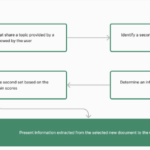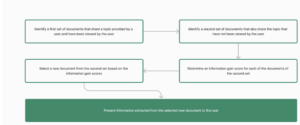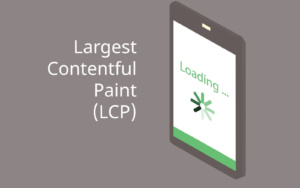In the digital age, where content is king, crafting a blog post that truly stands out requires more than just a knack for writing. Enter the concept of “information gain”—a powerful tool that can transform your blogging from mundane to magnetic. This blog will explore how leveraging information gain can enhance your blog’s impact and relevance, attracting more readers and boosting your SEO efforts. Whether you’re a seasoned blogger or just starting, understanding and applying information gain can set you apart in the crowded online space.
The Essence of Information Gain in Blogging
Information gain isn’t just a buzzword; it’s a concept rooted in decision theory and information science. It measures how much information a new piece of data adds to an existing set of knowledge. In the context of blogging, information gain refers to the value that your content provides to readers. High information gain means your readers are learning something new, useful, and relevant, making your blog a valuable resource.
Understanding information gain is crucial for bloggers looking to provide value to their readers. By focusing on delivering high information gain, you ensure that every sentence, every paragraph, and every section of your blog post adds meaningful value. This approach keeps readers engaged and encourages them to share your content, increasing its reach and impact.
Incorporating information gain into your blogging strategy involves more than just presenting facts; it’s about weaving those facts into a narrative that captivates and informs. By doing so, you not only enhance reader engagement but also boost your blog’s SEO, as search engines favor content that offers genuine value to users.
Why Information Gain Matters in Blogging
In a world saturated with content, standing out is no easy feat. Information gain offers a way to differentiate your blog by ensuring that your posts provide substantial value. Readers are more likely to return to your blog if they consistently find it informative and insightful, leading to increased traffic and engagement.
From an SEO perspective, information gain is equally important. Search engines like Google prioritize content that is original, relevant, and of high quality. By focusing on information gain, you naturally enhance these qualities, improving your blog’s visibility and ranking on search engine results pages.
Furthermore, blogs with high information gain tend to foster communities of engaged readers who interact with the content through comments, shares, and recommendations. This community-building aspect not only amplifies your blog’s reach but also creates a loyal audience base that values your insights and expertise.
Crafting Blogs with High Information Gain
Creating a blog post with high information gain starts with thorough research. Understanding your topic deeply allows you to present fresh perspectives and insights that your readers can’t easily find elsewhere. This depth of knowledge is crucial for creating content that is both valuable and engaging.
Structure is another vital component. A well-organized blog with clear headings and subheadings makes it easy for readers to digest the information. Each section should build upon the last, guiding the reader through a logical progression that enhances their understanding and keeps them engaged.
Finally, don’t underestimate the power of storytelling. Weaving facts and insights into compelling narratives can elevate your blog’s information gain. Stories resonate with readers on a personal level, making the information you present more relatable and memorable.
Optimizing for SEO with Information Gain
Integrating information gain into your SEO strategy can significantly enhance your blog’s performance. By focusing on providing value-rich content, you naturally incorporate the keywords and phrases that search engines look for when ranking pages.
Begin by identifying key topics that resonate with your audience and align with your expertise. Use these topics as a basis to conduct keyword research, ensuring that your blog post targets relevant terms that will attract your desired audience.
Additionally, consider the user experience. Search engines take into account how users interact with your content, so make sure your blog is easy to read, well-structured, and visually appealing. High information gain not only satisfies readers but also signals to search engines that your content is valuable and authoritative.
Tailoring Your Content for Your Audience
Understanding your audience is paramount when aiming for high information gain. Knowing what your readers value helps you tailor your content to meet their needs and expectations. This audience-focused approach ensures that your blog remains relevant and engaging.
Start by analyzing your audience’s demographics, interests, and pain points. Use this information to craft posts that address their specific needs and challenges, offering solutions and insights that are directly applicable to their lives.
Engagement is a two-way street. Encourage your readers to interact with your content by asking questions, inviting feedback, and fostering discussions in the comments section. This interaction provides valuable insights that you can use to further refine your content strategy and maintain high information gain.
Balancing Information Gain with Readability
While providing in-depth information is crucial, maintaining readability is equally important. Striking the right balance ensures that your blog is both informative and accessible, keeping readers engaged from start to finish.
Use clear, concise language and avoid jargon that could alienate readers. Break up dense information into smaller, digestible sections, and use visuals like images and infographics to enhance understanding.
Formatting tools such as bullet points, numbered lists, and bold text can also aid readability, allowing readers to quickly grasp key points and concepts without feeling overwhelmed by large blocks of text.
The Role of Research in Information Gain
Research forms the backbone of any high-information-gain blog post. It allows you to present accurate, up-to-date, and relevant information that adds real value to your readers’ knowledge base.
Start by identifying reputable sources and conducting a thorough review of existing literature on your topic. This foundation enables you to build a nuanced understanding that can inform your writing and provide a unique perspective.
Don’t forget to incorporate data and statistics into your blog. These elements lend credibility to your content and help substantiate your arguments, making your blog a trusted resource for your audience.
Examples of High Information Gain in Blogs
To truly understand the power of information gain, let’s look at some examples of blogs that excel in this area. These blogs not only provide valuable insights but also engage and captivate their readers through masterful use of information gain.
One example is [Blog Example 1], which seamlessly integrates facts into compelling narratives that resonate with its audience. Another is [Blog Example 2], known for its in-depth analysis and expert perspectives, offering readers a wealth of information in an accessible format.
These examples demonstrate the potential of information gain to transform a blog into a valuable resource, attracting a dedicated following and boosting visibility through word-of-mouth and social sharing.
Common Pitfalls to Avoid
While striving for high information gain, it’s essential to avoid common pitfalls that can undermine your efforts. One such pitfall is overloading your blog with information at the expense of clarity and readability. Remember, more isn’t always better.
Another mistake is neglecting to update your content regularly. Information becomes outdated quickly, and failing to keep your blog current can diminish its value and relevance.
Finally, avoid focusing solely on keyword optimization at the expense of content quality. Search engines are increasingly sophisticated, and they prioritize genuine value over keyword density.
Applying Information Gain to Different Blog Types
Information gain isn’t one-size-fits-all; it can be applied to various types of blogs, from how-to guides to opinion pieces. Understanding how to tailor information gain to different formats can enhance your blog’s effectiveness and appeal.
For how-to guides, focus on providing step-by-step instructions that empower readers to achieve their goals, supported by detailed explanations and examples. In opinion pieces, use information gain to present well-researched arguments and offer unique insights that challenge conventional thinking.
By adapting your approach to suit different blog types, you can maximize the impact and reach of your content, ensuring that it resonates with a diverse audience.
Conclusion and Next Steps
Harnessing the power of information gain can elevate your blogging efforts, transforming your content into a valuable resource that attracts and retains readers. By focusing on providing genuine value, structuring your content effectively, and tailoring your approach to your audience’s needs, you can enhance your blog’s impact and visibility.
To continue improving your blogging skills, consider exploring additional resources on content strategy, SEO optimization, and audience engagement. These areas offer valuable insights that can further refine your approach and ensure your blog remains a leading voice in your niche.
Remember, information gain isn’t just about presenting facts; it’s about creating meaningful connections with your audience through content that informs, engages, and inspires.



















